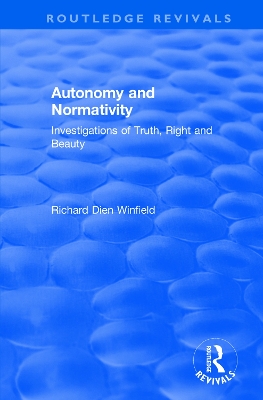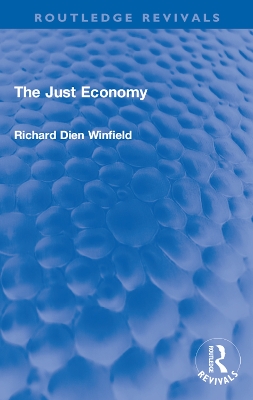Routledge Revivals
2 total works
This title was first published in 2001. Autonomy and Normativity explores central topics in current philosophical debate, challenging the prevailing post-modern dogma that theory, practice and art are captive to contingent historical foundations by showing how foundational dilemmas are overcome once validity is recognized to reside in self-determination. Through constructive arguments covering the principal topics and controversies in epistemology, ethics, and aesthetics, Autonomy and Normativity demonstrates how truth, right and beauty can retain universal validity without succumbing to the mistaken Enlightenment strategy of seeking foundations for rational autonomy. Presenting a compact, yet comprehensive statement of a powerful and provocative alternative to the reigning orthodoxies of current philosophical debate, Richard Winfield employs Hegelian techniques and focus to object to opponents, and presents a radical and systematic critique of the work of mainstream thinkers including Kant, Rawls, Husserl, Habermas and others. The ramifications for the legitimation of modernity are thoroughly explored, in conjunction with an analysis of the fate of theory, practice and art in the modern world. This book offers an invaluable resource for students of both analytic and continental philosophical traditions, and related areas of law, social theory and aesthetics.
First Published in 1988, Richard Dien Winfield's The Just Economy investigates what the economy should be, undertaking a normative inquiry ignored by contemporary economists. Drawing upon Hegel's Philosophy of Right, Winfield's book shows how justice lies in self-determination, how the economy can realize social freedom, and how economic relations must be regulated to uphold family welfare, equal economic opportunity, and political autonomy. Exposing the pitfalls in past attempts to conceive economic justice, including those of ancient Greek philosophers, social contract thinkers, the classical political economists, and Marx, The Just Economy settles the controversy between capitalism, socialism, and communism. It is crucial reading for thinkers and citizens the world over.

